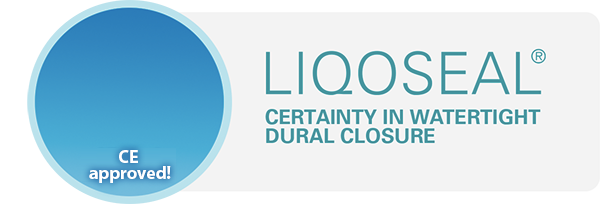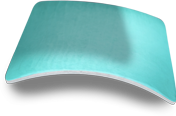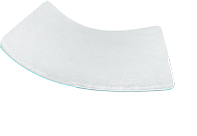Polyganics Announces Enrollment of the First Patient in its PROTECT NEURO Study
Groningen, The Netherlands, 20 April 2017 – Polyganics, a privately held medical technology company focused on the commercialization of proprietary products and technologies for peripheral nerve reconstruction and regeneration, announced today that it has enrolled the first patient in its international PROTECT NEURO study to treat and prevent symptomatic neuroma. The first patient was treated at Stanford Medicine by Catherine Curtin, MD, associate professor of surgery.
The PROTECT NEURO (Prospective Cohort Evaluation Of NEUROCAP® in the Treatment of Symptomatic Neuroma) study is aimed to collect additional evidence for the long-term effectiveness of NEUROCAP®, in the reduction of symptomatic nerve pain in patients with a history of having painful neuroma. PROTECT is a prospective cohort evaluation of NEUROCAP®’s performance in the surgical management of peripheral nerve-ends in both upper and lower extremities including amputation. 92 patients will be enrolled for the study which will run in 17 leading medical centres in both Europe and the United States. Completion of the study enrollment is due to take place in Q4 2017 and final results including two year patient follow-up are expected in 2019.
Polyganics’ NEUROCAP® is a transparent tubular device with a sealed end, a first-in-kind transparent nerve capping device that combines synthetic and bioresorbable qualities. NEUROCAP® is currently the only regulatory cleared dedicated device for the surgical management of symptomatic neuromas.
The Principal Investigator of this study is Professor L. Scott Levin, MD, FACS, from the University of Pennsylvania School of Medicine, a renowned surgeon in orthopaedic, plastic and reconstructive surgery.
Professor Levin said; “NEUROCAP is a promising solution for the treatment of neuromas, a peripheral nerve problem where there are currently limited effective treatment options available. NEUROCAP has the potential to positively impact the quality of life of many patients that suffer from neuromas. This study could provide evidence that this novel treatment is effective in reducing long term neuroma pain and disability.”
Rudy Mareel, CEO of Polyganics said, “Demonstration of long term efficacy is a key milestone for the global recognition of our game changing nerve capping device. NEUROCAP is now being accepted by the clinical community as a solution for the surgical management of symptomatic neuroma. Following the publication of the highly promising interim data of our STOP NEUROMA study in March, which showed an average pain reduction of 84% after three months following surgery using the NEUROCAP, we are focused on continuing our efforts to obtain additional evidence for the prevention of neuroma after nerve injury”.
Notes to Editors
About NEUROCAP®
NEUROCAP® is intended to protect a peripheral nerve end and to separate the nerve from surrounding environment to reduce the development of a symptomatic neuroma. NEUROCAP® is a tubular device with one open end and one closed end. Dislocation of the nerve stump is prevented by suturing the nerve end into the cap. A hole at the sealed end of the tube allows easy fixation of the nerve stump with a suture to the surrounding tissue. This allows an effective capping technique without the necessity of drilling a hole into bones, or sacrificing other tissue.
About the PROTECT study
To examine the long-term effectiveness of NEUROCAP®, Polyganics is working with 17 hospitals across Europe and the United States in an open non-randomized clinical investigation (PROSPECTIVE COHORT EVALUATION OF NEUROCAP® In the Treatment of symptomatic Neuroma: PROTECT NEURO). The study has been designed to obtain data on the long-term clinical performance of NEUROCAP®’s ability to isolate the nerve-end, and its effectiveness in both reducing pain from the symptomatic neuroma and the prevention of its reoccurrence. More information on the PROTECT NEURO study including all 17 participating centres can be found on www.clinicaltrials.gov (identifier: NCT02993276).
About Neuromas
A neuroma is a painful condition, also referred to as a “pinched nerve” or a nerve tumor. It is a benign growth of nerve tissue. It brings on pain, a burning sensation, tingling, or numbness and seriously affects the patient’s daily life. Approximately 3-5% of all patients involved in peripheral nerve injury develop a symptomatic neuroma. In the US alone there are approximately 600,000 nerve repair procedures per year. It is estimated that around 185,000 persons in the US undergo amputations of a limb each year of which around 20% will develop symptomatic neuromas. There are several options for treating these neuromas, but an entirely effective treatment remains elusive. To date there are on average 2.8 re-interventions for every Symptomatic Neuroma treatment. In 86% of the cases there is little to no improvement. NEUROCAP® is intended to be used for symptomatic neuromas that occur after nerve repair and for amputation stump neuromas.
About Polyganics
Polyganics is a medical technology company with multiple versatile polymer platforms. The Company develops, manufactures and commercializes innovative bioresorbable medical devices that facilitate tissue repair and regeneration.
Polyganics’ portfolio includes products developed in-house and in collaboration with leading medical technology companies and academic centers of excellence. In the Peripheral Nerve Repair (PNR) and neurosurgery field, the portfolio includes three marketed products: VIVOSORB® for minimizing unwanted tissue adhesions after surgery; NEUROLAC® for supporting PNR following hand surgery; and NEUROCAP® for the management of symptomatic neuromas. Products in development include a sealant for the dural membrane, for use post brain surgery.
In 2014, Polyganics sold its Ear, Nose & Throat (ENT) surgery business unit (the NASOPORE® product family including HEMOPORE®, SINUPORE® and OTOPORE®) to US Company Stryker, one of the world’s leading medical technology companies. NASOPORE®, a reliable, easy-to-use, nasal wound care dressing made of biodegradable foam, has been used in over 3.5m procedures globally. Polyganics continues to manufacture the NASOPORE® product range for Stryker.
Polyganics is profitable and privately held. The Company is based in Groningen, The Netherlands, a center of biomedical engineering excellence, in an ISO 13485-certified manufacturing facility. The Company’s polymer platform technologies are protected by a broad portfolio of patents and its products have received clearance from the US FDA, CE-approval, and approval from CFDA and other international authorities.
For more information, visit: www.polyganics.com




